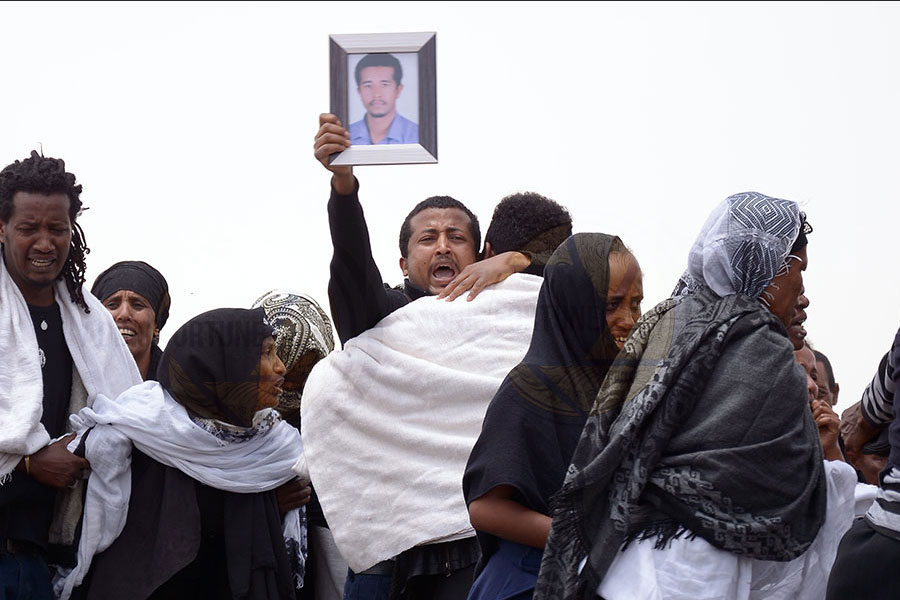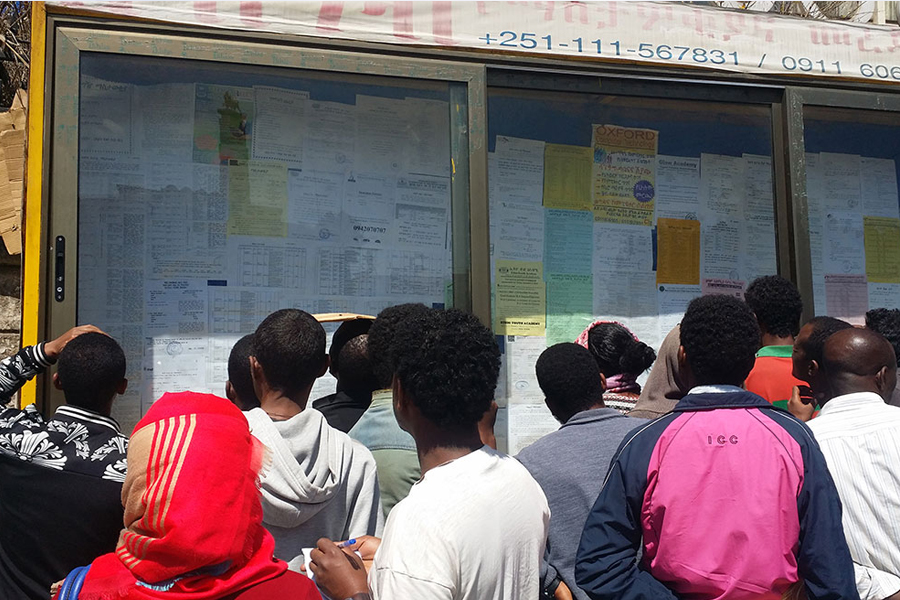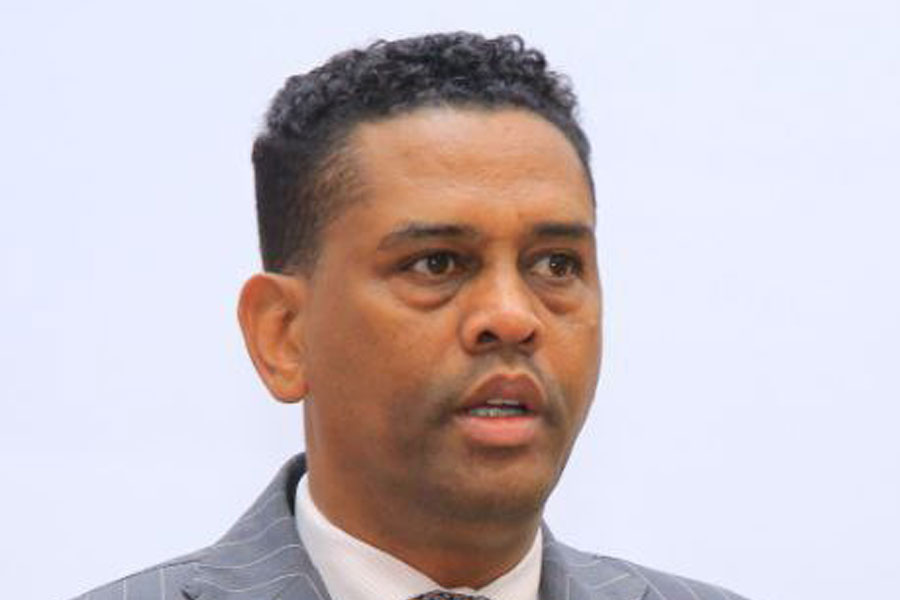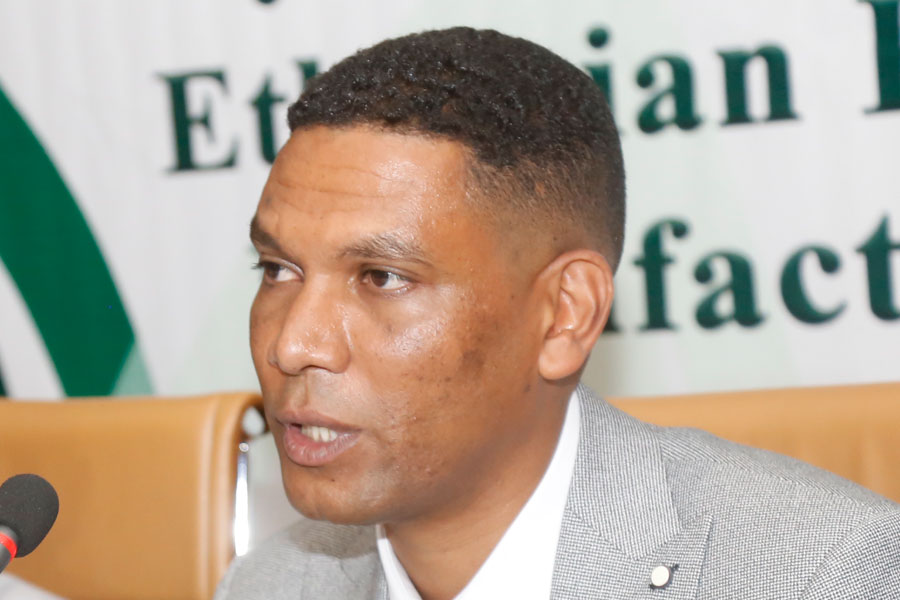
Radar | Jun 05,2021
Sep 14 , 2024
By Soumya Swaminathan , Christa Hasenkopf
With the right international collective action, the world can tackle problems in measuring air quality. The playbook is ready. Humanity has successfully faced global health issues in the past. There's no reason it can't make air quality visible, argue Soumya Swaminathan, co-chair of Our Common Air, and Christa Hasenkopf, director of the Clean Air Program at the Energy Policy Institute at the University of Chicago, in this commentary provided by Project Syndicate (PS).
The World Health Organization (WHO) annually summarises global progress on malaria control. It details the number of cases in affected countries, shows year-on-year changes, outlines goals, and assesses the current funding landscape. The United Nations puts out a similar annual report for HIV/AIDS. This regular tracking of serious public health concerns is essential for addressing them effectively, because it can help channel resources to where they are most needed and identify interventions that are working.
But there is no authoritative, up-to-date global accounting of air pollution, a health risk that takes a larger toll than malaria and HIV/AIDS combined. Particulate matter, a form of air pollution often associated with dust and smoke, was the leading contributor to the world's disease burden in 2021. It has been found to cut 1.9 years from average life expectancy. Air pollution was also linked to more than 700,000 deaths in children under five years old in 2021, making it the second highest risk factor for death in this age group.

The world's main authority on air quality is arguably the WHO, which produces globally influential standards for pollution levels. Its most recent guidelines, published in 2021, aimed to improve air-quality standards by lowering the recommended level of fine particulate matter (PM2.5) from 10 micrograms a cubic meter to five.
The WHO also compiles data on annual particulate matter in cities worldwide through its ambient air quality database, primarily sourced from government measurements and updated every two to three years. But in the most recent edition (updated in January 2024), only 0.4pc of cities reported data from 2022, and more than half of the data are at least seven years old. Many countries in Africa, Latin America, and Asia – which bear a disproportionate share of the health burden from air pollution – are missing measurements, with four of the most polluted countries reporting none.
This lack of data makes it impossible to gauge global progress or to ensure strategic resource allocation.
Satellite-derived data could fill in the gaps. But while several groups generate and compile such information, there is no definitive database. (Anecdotally, when we asked 10 air-quality experts where they go for the most recent data, we received 14 different answers, none of which meet the criteria for an authoritative global source.) Annual data often have a lag of up to two years, and no established mechanism exists to assess their quality.
Contrary to its name, calculating satellite-derived air-quality data requires ground monitoring data, which can make satellite data less reliable in countries with little monitoring capacity.
Addressing air pollution worldwide requires a clear view of the global picture. Fortunately, building a system that regularly tracks collective progress on reducing particulate matter, with built-in mechanisms to help improve data-gathering efforts in the most polluted places, is technologically, logistically, and politically feasible.
The first goal should be to create an annual, authoritative accounting of PM2.5 pollution in every country. This would require incentivising countries to contribute more recent ground-monitoring data, establishing a process to combine these data with available satellite information to determine their annual pollution levels, and identifying capacity and data gaps and directing resources accordingly.
Global development and philanthropic organisations will have to provide significant financial and human resources to launch such an effort, including support for countries that cannot currently monitor or measure air quality. It will also require public health, environmental, and finance leaders to work together, much as they have done to tackle other serious issues such as malaria, HIV/AIDS, COVID-19, and tuberculosis.

Several UN agencies, including the WHO, the World Meteorological Organization (WMO), and the UN Environment Programme (UNEP), could house or coordinate these data-gathering and capacity-building efforts. And institutions such as the World Bank, regional development banks (the African Development Bank, the Asian Development Bank, and the Inter-American Development Bank, among others), bilateral donors, and philanthropies must help finance them.
There is a dire need for international collective action to tackle this challenge, which is local yet has global consequences. Our Common Air's latest report on reporting and tracking air quality addresses some of the critical concerns in the commission's recommendations. We have successfully confronted global health challenges in recent years and, in doing so, created a playbook that can be applied to others.
The question now is whether the international community will use it to tackle the world's single greatest external risk to human health.
PUBLISHED ON
Sep 14,2024 [ VOL
25 , NO
1272]

Fortune News | Mar 16,2019

Commentaries | Jun 13,2020

Agenda | Jul 22,2023

My Opinion | Jan 01,2022

Fortune News | Mar 09,2020

My Opinion | 120552 Views | Aug 14,2021

My Opinion | 116645 Views | Aug 21,2021

My Opinion | 115397 Views | Sep 10,2021

My Opinion | 113137 Views | Aug 07,2021

Dec 22 , 2024 . By TIZITA SHEWAFERAW
Charged with transforming colossal state-owned enterprises into modern and competitiv...

Aug 18 , 2024 . By AKSAH ITALO
Although predictable Yonas Zerihun's job in the ride-hailing service is not immune to...

Jul 28 , 2024 . By TIZITA SHEWAFERAW
Unhabitual, perhaps too many, Samuel Gebreyohannes, 38, used to occasionally enjoy a couple of beers at breakfast. However, he recently swit...

Jul 13 , 2024 . By AKSAH ITALO
Investors who rely on tractors, trucks, and field vehicles for commuting, transporting commodities, and f...

A severe cash shortage squeezes the economy, and the deposit-to-loan ratio has slumpe...

Jan 4 , 2025
Time seldom passes without prompting reflection, and the dawn of 2025 should nudge Et...

Dec 28 , 2024
On a flight between Juba and Addis Abeba, Stefan Dercon, a professor of economic poli...

Dec 21 , 2024
The main avenues and thoroughfares of Addis Abeba have undergone an impressive faceli...

Jan 12 , 2025
Wegagen Bank, lined up to become the first company to list on the newly launched Ethi...

Jan 12 , 2025 . By AKSAH ITALO
Ethiopia's key industries are battling the contraband trade. Leaders from tobacco, co...

Jan 12 , 2025 . By BEZAWIT HULUAGER
An alleged shareholder of Sunpay Solutions S.C., Bruck Fikre, has filed a lawsuit see...

Jan 12 , 2025 . By BEZAWIT HULUAGER
Plastic manufacturers are pushing back against a bill banning single-use plastic...